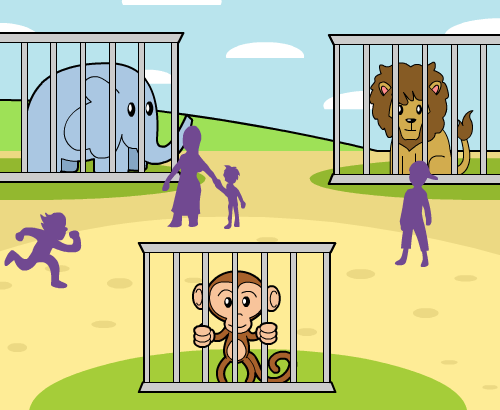Many people visit zoos with their schools or families. At zoos, we get to see animals that we don’t see in our everyday lives. We learn about their characteristics, homes, and eating habits. However, it is important not to forget that zoo animals are inside cages. We should ask ourselves this question: Do zoos educate people and protect animals, or are they simply a way to make money?
On the positive side, zookeepers are experts on animals, and they spend years studying how to look after them. They work hard every day to feed and care for their animals, and build strong relationships with them. Zoos sometimes rescue animals that have lost their homes or are in dangerous situations. They provide a good standard of living for these animals and keep them healthy.
However, some zoos don’t do a very good job. Some zoos are in bad condition, and they don’t take good care of the animals. Sometimes this can be seen in how the animals act. You might see tigers walking back and forth in tiny cages or monkeys trying to hide from zoo visitors.
Zoos educate the public and save some rare animals. If people don’t learn about these animals, they might not learn to appreciate the animals in the future. It’s important to teach children the value of wildlife, so that they respect it. On the other hand, zoos are artificial and crowded. Visitors are not seeing animals in their natural surroundings. As a result, they aren’t learning about the animals’ real lives. In the wild, animals live without the aid of humans. If we leave animals alone, they are able to manage for themselves perfectly without us.
Zoos are important to preserve rare species and create respect for animals. However, humans are destroying the world’s natural balance, so we should consider protecting creatures’ spaces instead of putting them into human ones.
